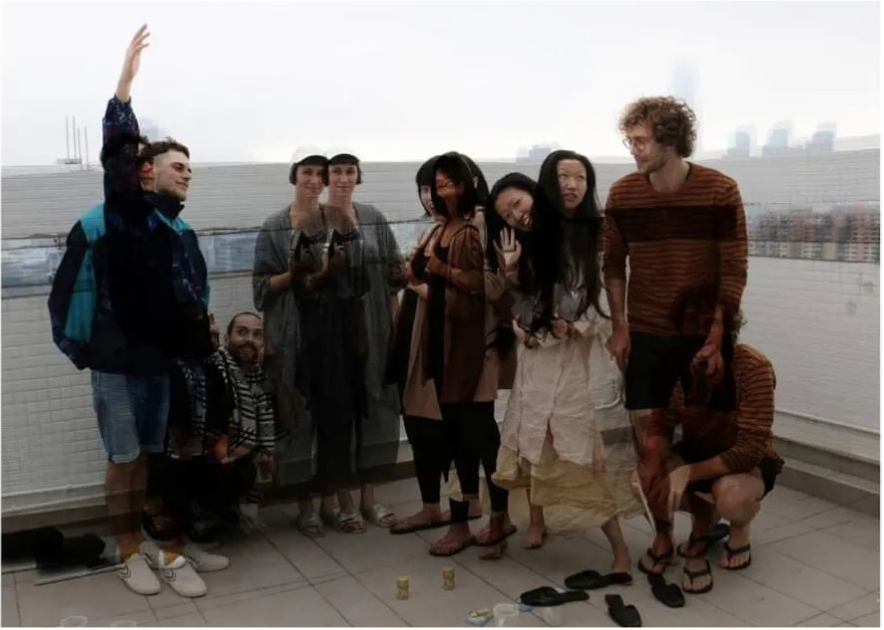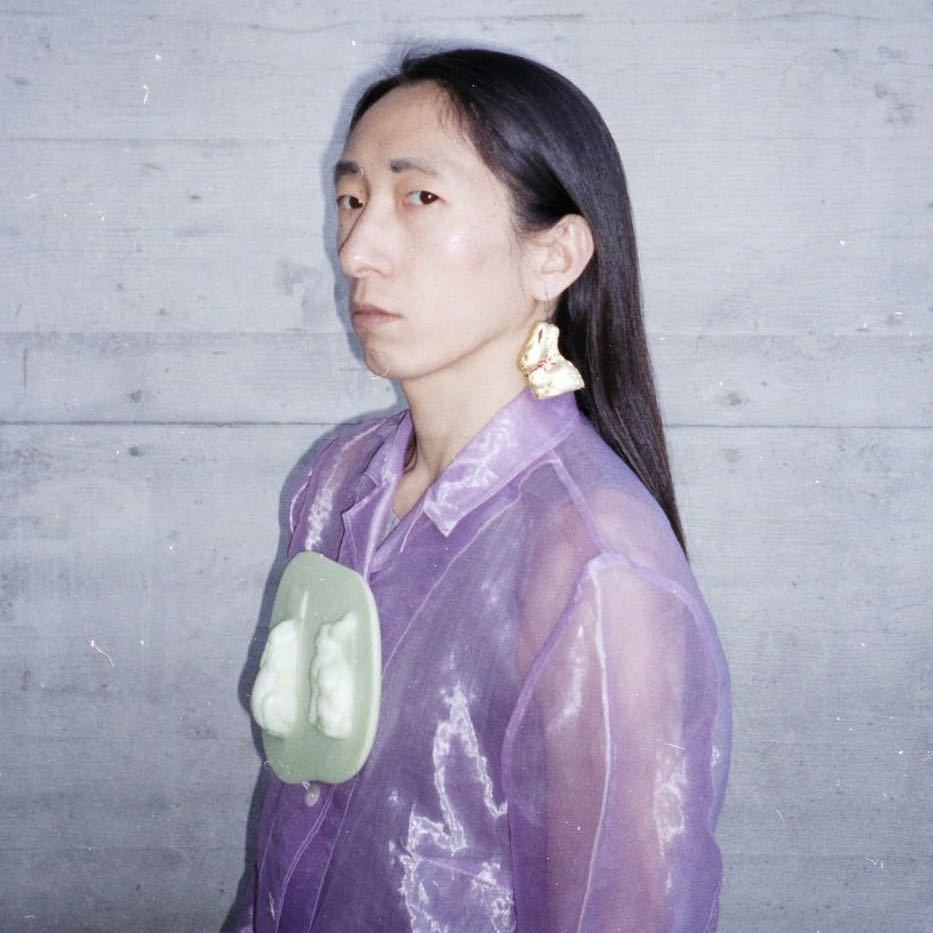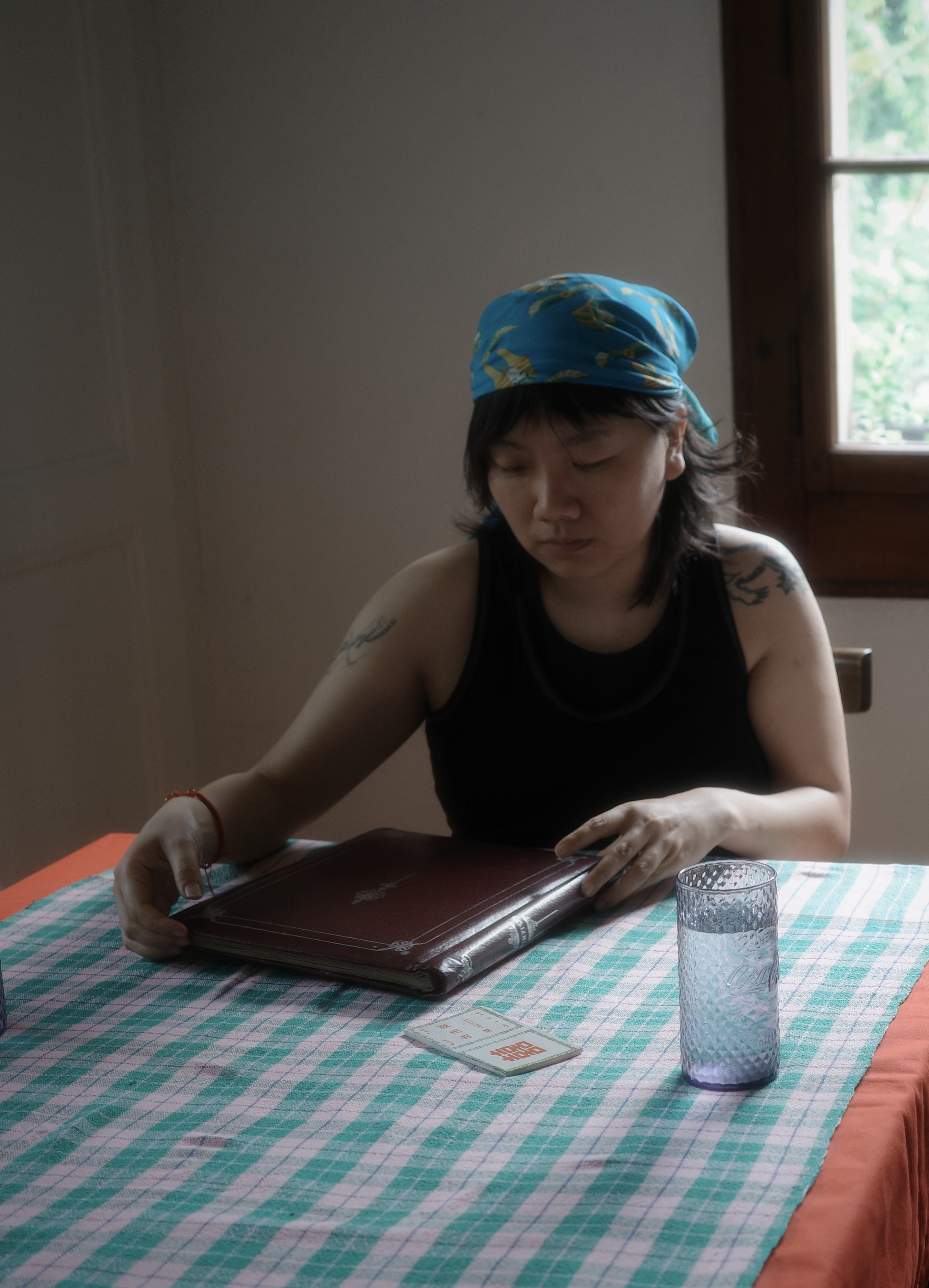sinokultur offers artists from the fields of art, literature and music the opportunity to realize and communicate their projects by financially supporting several projects per year. In 2026 we are supporting the following projects:
sinokultur offers artists from the fields of art, literature and music the opportunity to realize and communicate their projects by financially supporting several projects per year. In 2026 we are supporting the following projects:

The Euro-Asian RRRRRR collective will present their performance "Wen Keng We Meet? - On Connection" in January 2026 at Theaterhaus Gessnerallee, Zurich.
RRRRRR Collective is an Euro-Asian transcultural art collective of performers, visual artists, and a dramaturg: Keng Chen (*1995, Hangzhou/Shanghai), Wen-Chi Liu (*1993, Taipei), Dino Radoncic (*1994, St. Gallen), Eneas Prawdzic (*1989, Zurich), Nathalie Stirnimann (*1990, Zurich), and Stefan Stojanovic (*1993, Zurich).
The collective was founded in 2018 through the “Transcultural Collaboration” program (ZHdK Zurich / Baptist University Hong Kong). Since then, they have developed performances, installations, and residencies in Zurich, Shanghai, Hong Kong, and Taipei. Their practice explores connection, long-distance collaboration, and collective authorship through intuitive and process-driven methods. Past works include “Forbidden Fruits from Richland Garden” (Hong Kong, 2018), “Wen Keng We Meet? – On the (Im)Possibility of Long-Distance Artistic Collaboration” (Zurich, 2019), and “Keng, You Swim!? – Round Two” (Shanghai, 2024).
Their current project, “Wen Keng We Meet? – On Connection”, developed in collaboration with “Open Studio” by Dimitri de Perrot (usage of the scenographic and audio concept), continues this inquiry into transcultural artistic exchange.
Despite globalization, we are witnessing a global resurgence of borders, separation, and geopolitical tension.
The performance “Wen Keng We Meet? – On Connection” places at its centre the question of how, as members of different societies, we can continue to stay connected across national borders — and even deepen those connections.
Therefore, the transnational collective RRRRRR brings a documentary-fictional theatre piece to the stage, transforming a real event — their 2024 attempt to meet at the narrowest point between China and Taiwan — into a poetic reflection on human connection.

Ni Dao Dao's artistic practice engages deeply with cross-cultural dialogue, identity, migration, hybridity, biodiversity, and ecological concerns. They work with materials in a highly physical and embodied way, seeking to create connections between cultural heritage and contemporary urgencies.
A central element of their practice is the use of natural Chinese lacquer (Urushi) — a traditional, eco-friendly material with strong cultural significance. Through working with Urushi, they explore questions of material kinship, sustainability, and care for the more-than-human world. The upcoming exhibition at AKKU Uster will present new installation works that bring together these concerns while also situating them in a Swiss context of intercultural exchange.
The exhibition Between Snow and Rabbits at AKKU Uster offers an opportunity to bring these perspectives into conversation with local audiences, fostering awareness of cultural hybridity, identity, and ecological responsibility.
The exhibition is curated by Fu Congle, a Zurich-based Chinese curator and PhD research fellow, whose perspective contributes an important layer of cross-cultural reflection and dialogue.
Ni Daodao 倪島島 (born in Chongqing, China) is a non-binary artist based in Uster, Switzerland.

The project A Letter from Home is a short docufiction film inspired by Li Chaolin's family history that explores familial bonds—both genuine and incidental—across three generations.
The Letter from Home is a narrative process in progress. Its origins date back to a true story Li Chaolin's family experienced. In the late 1980s, a letter sent from Taiwan, after a long wait, unexpectedly connected families who had not known each other before, bringing with it the memories and emotions of three generations. Years later, as Li Chaolin herself constantly navigates between home and elsewhere, memory becomes a passageway. It opens up a space where everyday life, history, and what has never been said unfold between reality and fiction. The experience of diaspora life, absence, and collective wounds passed down from generation to generation recur constantly in narratives marked by the ruptures of major historical upheavals.
Through family archives, letters, images, and voices Li Chaolin follows the letter with the moving image. In search of a possible place to settle, at the crossroads of wandering and sedentarization, in a process of slow and continuous collective healing.
Li Chaolin is an artist and cultural worker whose practice moves fluidly across collective processes, diasporic experiences, and storytelling. The experience of growing up in a small town in Southwest China, and later studying and living in France and Switzerland, they developed a sense of perceiving the hidden layers in everyday life, much like the moon, always present, sometimes invisible.
Their practice lingers in these relations of appearing and disappearing, suspension and pause. Using actions, humorous drifting, and low-tech methods, they bring to the surface emotions, memories, and relationships that are often overlooked in the daily experience, operating in the gaps between fiction and reality. They see themself as a spontaneous playground, using the “I” both as a medium and as a process. Moving between memory, dreams, and collective experience, their work explores how the self is continuously reshaped through encounters with others, and how these transformations resonate within broader social and historical contexts.
Estimated Duration: 15 minutes
Showing: Halle Nord, Geneva, 17 April - 9 May 2026
photo credit @Grandee Doriji
All fields are required.